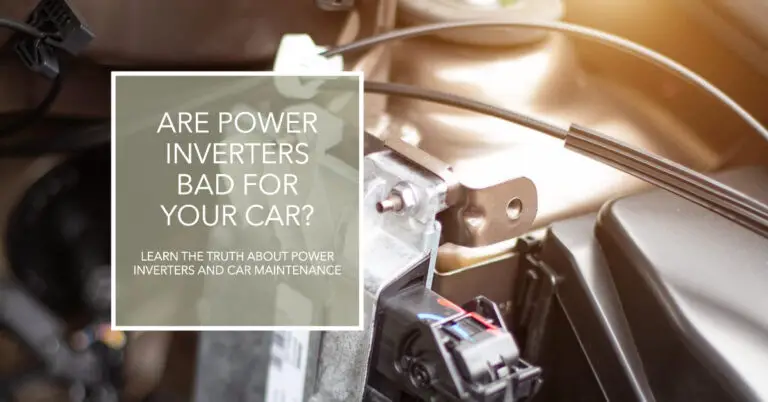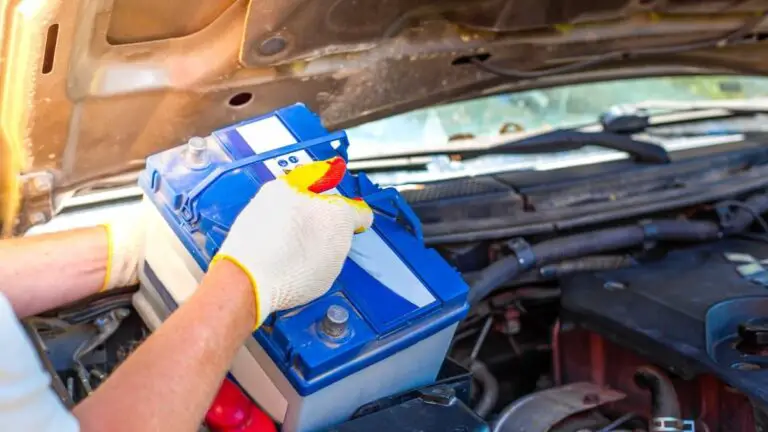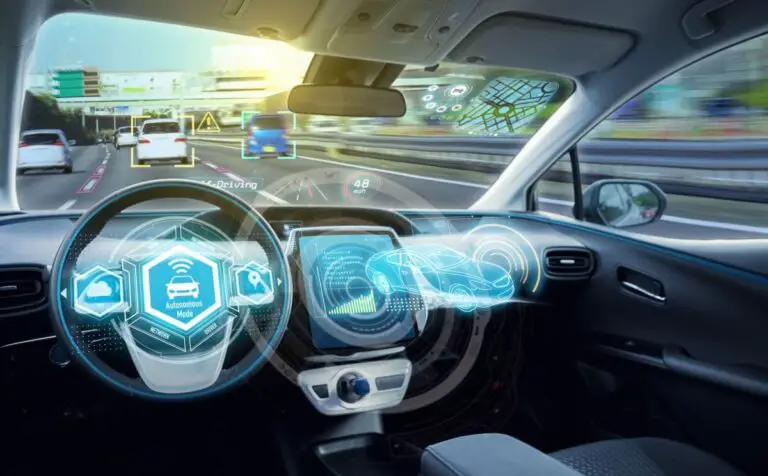How Long to Drive a Car to Charge a Battery: The Truth Revealed

Car batteries can die at the most inconvenient times, leaving drivers stranded and frustrated. While most people know that a dead battery can be jump-started, not everyone knows that driving the car can also recharge the battery. The question is, how long do you need to drive to charge a car battery, and is it a reliable method?
According to the experts, driving your car to recharge a dead battery is possible, but it’s not a guaranteed fix. The amount of time it takes to charge a battery while driving depends on several factors, such as the age and condition of the battery, the type of car, and how long the car has been sitting without being driven. While some sources suggest that it can take as little as 30 minutes of driving at highway speeds to fully recharge a battery, others recommend using a battery charger to ensure a complete and safe recharge.
It’s important to note that driving to recharge a battery can also be dangerous, as it can lead to overheating and damage to the alternator. Before attempting to recharge a battery by driving, it’s essential to check the battery’s voltage and condition, as well as the car’s alternator and charging system. In this article, we’ll explore the truth about how long it takes to charge a car battery by driving and provide tips for safely and effectively recharging your battery.
Table of Contents
Factors that Affect Battery Charging Time
1. Battery Capacity
The capacity of a car battery plays a significant role in charging time. A battery with a higher capacity will take longer to charge than one with a lower capacity. For instance, a 60 kWh battery pack will take a minimum of 60 hours to charge in full.
2. Charging Rate
The charging rate of the battery charger also affects the charging time. The charging rate is the amount of current that the charger can deliver to the battery. A charger with a higher charging rate will charge the battery faster than one with a lower charging rate.
It’s important to note that the charging rate is also limited by the battery’s capacity. For example, if the battery has a capacity of 60 kWh and the charger can deliver 19 kW, it will take a minimum of 3 hours and 9 minutes to charge the battery.
Moreover, the charging rate can vary depending on the type of charger used. A Level 2 connector can take up to 12 hours to charge a new electric car, while a plug-in battery charger can take between 10-24 hours to fully charge a car battery.
3. Driving to Recharge Battery
Driving at highway speeds generates more revolutions per minute (RPMs), which can recharge the battery faster. It takes most vehicles about 30 minutes of driving at highway speeds to fully recharge the battery. However, the time taken to recharge the battery can vary depending on the engine’s speed and the battery’s capacity.
Average Time to Charge a Car Battery
When it comes to charging a car battery, the time it takes can vary depending on several factors. The size of the battery, the type of charger used, and the level of charge remaining in the battery are all important factors to consider.
According to plug-in battery charger estimates, it can take anywhere from 10 to 24 hours to fully charge a car battery. However, if the battery is only partially charged, it can take less time. For example, if the battery is at 50% charge, it can take about eight hours of highway driving to charge it to almost full.
It’s important to note that the alternator in a car will also charge the battery while the engine is running. So, if the battery is dead and the engine is jump-started, it can take between 30 minutes to an hour of driving to fully charge the battery.
Table of contents:
| Charger Type | Time to Charge |
|---|---|
| 2 Amp | 24 to 48 hours |
| 4 Amp | 12 to 24 hours |
| 10 Amp | 3 to 6 hours |
| 20 Amp | 2 to 4 hours |
It’s important to use the appropriate charger for the size of the battery. Using a charger with too high of an amperage can damage the battery, while using a charger with too low of an amperage can take longer to charge the battery.
In summary, the time it takes to charge a car battery can vary depending on several factors. It’s important to use the appropriate charger and allow enough time for the battery to fully charge.
Tips to Reduce Charging Time
Use a High-Quality Charger
Using a high-quality charger can significantly reduce the time it takes to charge a car battery. A good charger will charge the battery at a higher rate and will automatically switch to a maintenance mode once the battery is fully charged. This will prevent overcharging and prolong the life of the battery. It is important to choose a charger that is compatible with your car’s battery and has the right amperage rating.
Avoid Extreme Temperatures
Extreme temperatures can affect the performance of the battery and increase the charging time. It is best to avoid charging the battery in extreme temperatures, whether it’s too hot or too cold. If charging in hot temperatures is unavoidable, it is recommended to park the car in a shaded area or use a car cover to keep the battery cool.
Turn Off Accessories
Turning off all accessories, such as the radio, air conditioning, and lights, can reduce the load on the battery and increase the charging time. This will allow the battery to charge more efficiently and quickly. It is also recommended to disconnect any devices that are not in use, such as phone chargers or GPS devices, as they can drain the battery.
Maintain Your Battery
Regular maintenance of the battery can help reduce the charging time and prolong the life of the battery. This includes keeping the battery clean and free of corrosion, checking the fluid levels regularly, and ensuring that the battery is properly secured in the car. It is also important to drive the car regularly to keep the battery charged and prevent it from going flat.
Conclusion
In conclusion, it is important to understand that the length of time it takes to charge a car battery while driving can vary depending on several factors. The type of vehicle, the condition of the battery, and the speed at which the car is driven can all affect the charging time.
As per the search results, it takes between 30 minutes and an hour of driving to charge a car’s battery. However, this is not a one-size-fits-all solution, and it may take longer depending on the specific circumstances.
It is important to note that while driving can help charge a battery, it is not a replacement for regular maintenance and proper charging techniques. If a battery is consistently not holding a charge, it may be time to replace it.
By following proper maintenance techniques and taking care of the battery, drivers can ensure that their car battery lasts as long as possible. This includes regular inspections, cleaning, and charging as needed.
Overall, while driving can help charge a car battery, it should not be relied upon as the sole method of charging. With proper care and maintenance, a car battery can last for years and provide reliable performance.
FAQs
How long does it take to charge a car battery while driving?
The time it takes to charge a car battery while driving can vary depending on several factors such as battery size, alternator output, and driving conditions. Assuming a standard 12-volt car battery, it can take approximately 6-8 hours to charge while driving. This timeframe can be shortened or lengthened depending on the factors mentioned above.
Can a car battery charge while idling?
Yes, a car battery can charge while idling. However, it may take longer to fully charge the battery in this manner. It is also important to note that idling for extended periods can be detrimental to the environment and may also increase fuel consumption.
How long does it take to charge a car battery with a charger?
The time it takes to charge a car battery with a charger can vary depending on the charger’s output and the battery’s size and condition. Generally, plug-in battery chargers estimate 10-24 hours to fully charge a car battery. However, some fast chargers can charge a battery in as little as 30 minutes.
Can a car battery be overcharged?
Yes, a car battery can be overcharged, which can cause damage to the battery and potentially be a safety hazard. It is important to follow the manufacturer’s recommendations for charging and avoid leaving the battery on a charger for extended periods.
How often should a car battery be charged?
A car battery should be charged as needed, which can vary depending on driving habits and conditions. In general, it is recommended to charge a car battery if it has been discharged to less than 50% of its capacity. However, it is important to avoid overcharging the battery and to follow the manufacturer’s recommendations for charging.







